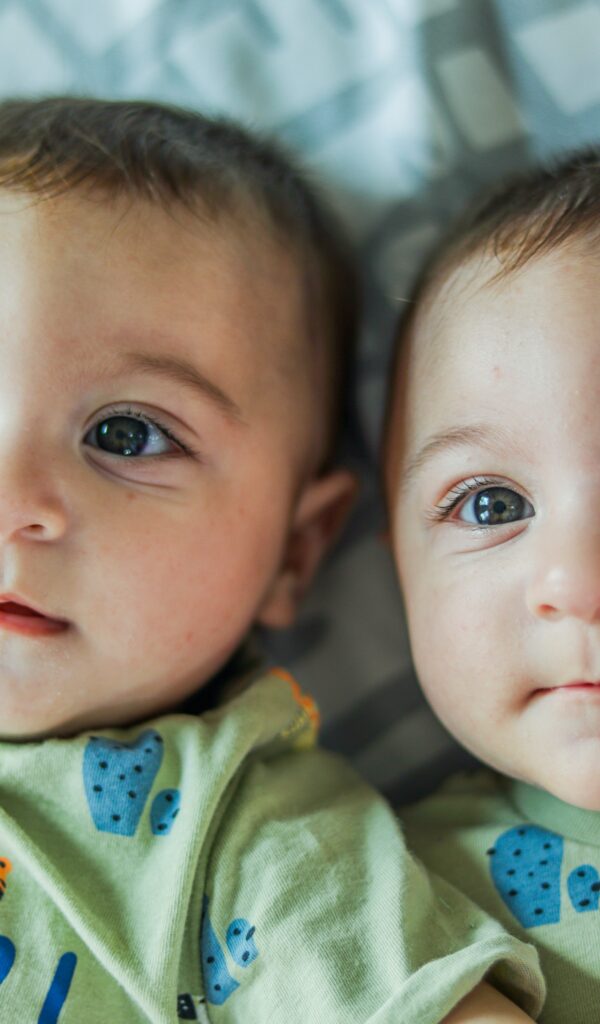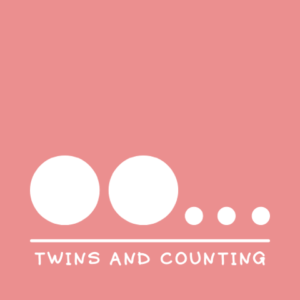
If you’re expecting twins or they have already arrived, and you’re not comfortable distinguishing them, then we hope this page will help you.
Identical vs. fraternal
When it comes to twins, there are two types: identical and fraternal. Identical twins occur when an egg is fertilized by a single sperm, and the resulting zygote splits into two embryos. Fraternal twins happen when two eggs are fertilized by two different sperm cells.
So, how can you tell them apart? For starters, identical twins share the same DNA. That means they’ll look very similar, if not exactly the same. Fraternal twins, on the other side, only share around 50% of their DNA. So, they may look alike, or they may not – it just depends on how much DNA they have in common.
Of course, the best way to tell identical vs. fraternal twins apart is simply to ask their parents!
Of course, these physical differences can also be subtle, so don’t worry if you can’t immediately tell your twins apart. The best method to really get to know your twins is by spending time with them and getting to know their individual personalities.
Using birthmarks, hair color, and other unique characteristics
When you’re a parent of twins, telling them apart is crucial. There are multiple ways to do this, but one of the easiest is to look for unique characteristics. This can include birthmarks, hair color, and other physical features.
One of the most common ways to tell twins apart is by their hair color. If one twin has dark hair and the other has light hair, this can be a helpful way to differentiate between them. Other physical features such as birthmarks or eye color can also be helpful in telling twins apart.
If you’re struggling to tell your twins apart, don’t worry – we have plenty of resources out there to help you.
Different ways to tell twin babies apart
Tips for parents of twins
As parents of twins, it is important to find ways to tell your babies apart. Here are some tips:
- Give each baby a different color outfit to wear. This will help you quickly identify which baby is which.
- Use different colored ribbons or bows in their hair.
- Place a bracelet or anklet on one baby’s ankle or wrist.
- Keep track of which twin got which immunizations and when by using a special chart or journal.
- Put identifying birthmarks or other physical features in your journal as well.
- If you are breastfeeding, keep track of which breast each baby last nursed from so you can start there the next time around.
- Get creative with nail polish! Paint one twin’s nails with a different color or design than the other.
- You can even use a sharpie to write their initials on the skin.
- Use different colored bibs, socks, or hats.
- Take photos of each twin every day and keep them in separate baby books.

At what age are twins the hardest?
As twins get older, it can become easier to tell them apart. When they are babies, they tend to be the most difficult to differentiate. This is especially true if they are of the same gender and have similar features. At 3-6 months, many parents find that they are hardest to identify so; they try to keep their clothing or hairstyles different.
When they get older and develop their own personalities and have their own habits, it gets a lot easier to tell your babies apart. While they are young, they are still dependent on you to be able to distinguish them. Every new mom of identical twins has this problem, and it is one that gets easier over time.
Conclusion
There are a few key things to look for when trying to tell twin babies apart. Firstly, they may have different hair textures or colors. Secondly, they may have differently shaped heads, eyebrows, or mouths. Finally, you can look at their hands and feet – twins often have differently shaped hands or fingers. By looking for these subtle differences, you should be able to tell your twin babies apart with ease.
By following the above ways, you can quickly flip through and see who is who? Do you have any other tips for telling twins apart? Share them in the comments below!
Thanks for reading!
Recent Posts
Having twins can be scary, overwhelming, and hard. But, it's also beautiful, fun, and adorable! Let's focus on the positives with these cute and funny stories about raising twins. Comment which one...
Newborn photography is a beautiful way to capture the fleeting moments of your baby’s earliest days. These precious photos become cherished keepsakes, encapsulating the joy and tenderness of...
